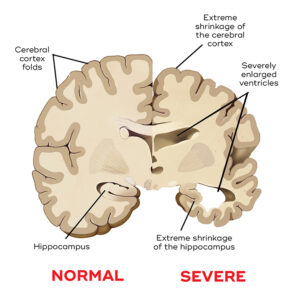In a world that thrives on fast-paced, constant communication, the loss of one’s ability to hear can lead to a profound sense of social isolation. So can grief, isolated living conditions, mental health issues, and physical or medical impairments. But staying social is so important for our overall well-being. Unlocking Social Engagement for Improved Wellbeing can help reduce isolation, improve mental health, and foster meaningful connections that enhance our quality of life. By Unlocking Social Engagement for Improved Wellbeing, we can create a stronger, more connected society that benefits us all.
Human beings are inherently social creatures. Fostering meaningful connections with others plays a vital role in our overall happiness, physical and mental well-being. But why is social engagement so important? And how does it positively impact our lives?
1. Connection and Belonging
From the moment we’re born, we crave connection and a sense of belonging. Unlocking Social Engagement for Improved Wellbeing allows us to create deep and meaningful relationships, whether they be with family, friends, or our wider community. These connections provide us with a support system during hard times, celebrate our wins, support us through our losses, and offer a sense of shared experiences. Feeling connected and belonging enhances our self-esteem, improves our resilience, and ultimately contributes to our overall well-being.

2. Emotional Support and Mental Health
Human beings are complex creatures with a vast range of emotions. Social engagement provides us with a safe space to express ourselves, share our thoughts and feelings, and receive emotional support from those who care about us. Simply talking about our problems and concerns with a trusted friend or family member can significantly alleviate stress and anxiety. Engaging socially also helps combat loneliness and depression, as it reminds us that we are not alone in our struggles.

3. Social Isolation and Dementia
The detrimental effects of social isolation on our well-being extend beyond emotional and mental health. Research has indicated a strong link between social isolation and an increased risk of developing dementia. Prolonged periods of isolation can contribute to cognitive decline and accelerate the progression of neurodegenerative diseases. Engaging in social activities, maintaining regular social connections, and participating in stimulating conversations and interactions can help preserve cognitive function and reduce the risk of dementia. By prioritizing social engagement, we not only safeguard our mental well-being but also promote long-term brain health.
 Image from the University of Queensland, What causes dementia.
Image from the University of Queensland, What causes dementia.
4. Personal Growth and Learning
Social engagement exposes us to diverse perspectives, cultures, and ideas, fostering personal growth and expanding our horizons. Engaging in meaningful conversations and discussions allows us to broaden our understanding of the world and challenge our own perceptions. Through social interactions, we gain insights, learn new skills, and develop empathy, all of which contribute to our personal development. Engaging with others helps us see beyond our own limitations and opens new opportunities for learning and growth.
5. Increased Happiness and Life Satisfaction
Numerous studies have shown a strong correlation between social engagement and happiness. Engaging with others, whether through shared activities, conversations, or experiences, brings joy and fulfillment into our lives. Building strong social connections not only enhances our mood but also boosts our overall life satisfaction. Engaged individuals tend to have a more positive outlook, better self-esteem, and a greater sense of purpose and fulfillment.

6. Physical Health Benefits
Surprisingly, social engagement not only benefits our mental well-being but also has effects on our physical health. Strong social connections have been linked to a stronger immune system, lower blood pressure, reduced risk of chronic diseases, and even increased longevity. Engaging in social activities often involves physical movement and encourages a healthier lifestyle. Furthermore, having a network of supportive friends and family members can provide motivation and accountability for adopting and maintaining healthy habits.

Conclusion
In a world increasingly dominated by technology and digital interactions, prioritizing social engagement is more important than ever. During the pandemic, isolation became the unwelcome norm, but post pandemic, nurturing meaningful connections, engaging in face-to-face interactions, and actively participating in our communities can significantly improve our well-being.
By remaining socially engaged, we build connections and belonging, receive emotional support, promote personal growth, increase happiness, and even enhance our physical health.
We all have a role here. By bridging the gap between silence and connection, we can enhance lives and boost the human spirit. Fostering meaningful connections with others plays a vital role in our overall happiness and mental well-being. Can you think of someone who may be experiencing social isolation right now? You can use the Ambient Menu to find a quiet, non-stimulating place to chat and catch up. It can make a world of difference to them both physically and mentally.
So let’s embrace the power of social engagement and reach out to someone who may be isolated. It will take them, and you, on a journey of enriching relationships, personal growth, and a more fulfilling life.
Author: Laura Drexler
Creator of Ambient Menu
Masters of Audiology, Bachelor of Health Science
Presenter: Audiology Australia SA Chapter Conference 2023, Flinders University 2023, SA Gerontology Conference SA 2022, Audiology Unchained (Independent Audiology Australia) 2023
Awards: Audiology Australia Internship Award, Flinders University Early Career Alumni Award, Help Awards AMP Healthcare Hero.
Written for: SA Life, 50 So What, Grandparents Magazine

References
-
Bath, P.A. and Gardiner, A. (2005) ‘Social Engagement and health and social care use and medication use among older people’, European Journal of Ageing, 2(1), pp. 56–63. doi:10.1007/s10433-005-0022-9.
-
Bennett, K.M. (2002) ‘Low level social engagement as a precursor of mortality among people in later life’, Age and Ageing, 31(3), pp. 165–168. doi:10.1093/ageing/31.3.165.
-
Cherry, K.E. et al. (2011) ‘Social Engagement and health in younger, older, and oldest-old adults in the Louisiana Healthy Aging Study’, Journal of Applied Gerontology, 32(1), pp. 51–75. doi:10.1177/0733464811409034.
-
Fischler, C. (2011). Commensality, society and culture. Social Science Information, 50(3–4), 528–548. https://doi.org/10.1177/0539018411413963
-
Haim-Litevsky, D., Komemi, R. and Lipskaya-Velikovsky, L. (2023) ‘Sense of belonging, meaningful daily life participation, and well-being: Integrated investigation’, International Journal of Environmental Research and Public Health, 20(5), p. 4121. doi:10.3390/ijerph20054121.
-
Harrison, M. E., Norris, M. L., Obeid, N., Fu, M., Weinstangel, H., & Sampson, M. (2015). Systematic review of the effects of family meal frequency on psychosocial outcomes in youth. Canadian family physician Medecin de famille canadien, 61(2), e96–e106.
-
Huang, A.R. et al. (2023) ‘Social isolation and 9-year dementia risk in community-dwelling Medicare beneficiaries in the United States’, Journal of the American Geriatrics Society, 71(3), pp. 765–773. doi:10.1111/jgs.18140.
-
Longest, K. and Kang, J.-A. (2022) ‘Social Media, social support, and mental health of young adults during COVID-19’, Frontiers in Communication, 7. doi:10.3389/fcomm.2022.828135.
-
Luo, M. et al. (2020) ‘Social engagement pattern, health behaviors and subjective well-being of older adults: An international perspective using WHO-sage survey data’, BMC Public Health, 20(1). doi:10.1186/s12889-019-7841-7.
-
Mihai, M. et al. (2022) ‘Emotional and social engagement in the English Language Classroom for higher education students in the COVID-19 online context’, Sustainability, 14(8), p. 4527. doi:10.3390/su14084527.
-
National Academies of Sciences, Engineering, and Medicine. 2020. Social Isolation and Loneliness in Older Adults: Opportunities for the Health Care System. Washington, DC: The National Academies Press.
-
Reblin, M. and Uchino, B.N. (2008) ‘Social and emotional support and its implication for health’, Current Opinion in Psychiatry, 21(2), pp. 201–205. doi:10.1097/yco.0b013e3282f3ad89.
-
Rhubart, D. and Kowalkowski, J. (2022) ‘Perceived mental health impacts of the COVID-19 pandemic: The roles of Social Support and social engagement for working age adults in the United States’, Preventive Medicine, 162, p. 107171. doi:10.1016/j.ypmed.2022.107171.
-
Saeri, A.K. et al. (2017) ‘Social connectedness improves public mental health: Investigating bidirectional relationships in the New Zealand attitudes and values survey’, Australian & New Zealand Journal of Psychiatry, 52(4), pp. 365–374. doi:10.1177/0004867417723990.
-
What causes dementia? (2019) Queensland Brain Institute – University of Queensland. Available at: https://qbi.uq.edu.au/dementia/dementia-causes-and-treatment.
 Image from the University of Queensland, What causes dementia.
Image from the University of Queensland, What causes dementia.





